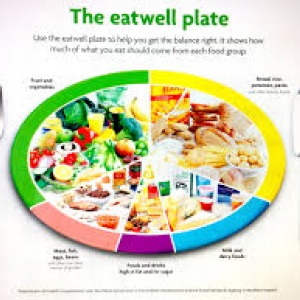
This paper provides a review of the current literature analysing environmental impacts of dietary recommendations. The review focuses on three aspects of dietary advice in particular: reducing the consumption of fat, reducing the consumption of meat-based protein and animal-based foods, and finally increasing the consumption of fruit and vegetables. It then reviews the environmental impact assessments and Life Cycle Analysis (LCA) that have been undertaken in foods that have relevance to these three dietary recommendations.
The authors write that: “Typically, as seen in the global dietary guidelines discussed by the World Health Organization (WHO) and the United Nations Food and Agriculture Organization (FAO), the dialogue on environmental benefits is tempered by the focus on health, and the need to provide practical advice that people can follow. Environmental considerations, if mentioned, are relegated to the appendices—as in the current Australian Dietary guidelines. Rare exceptions to this trend are the recent publications by the Health Council of the Netherlands and the Nordic Council of Ministers which discuss a healthy diet from an ecological perspective.”
The review finds that:
- There is evidence of environmental benefits from reducing animal product intake and increasing fruit and vegetable consumption.
- But there is a small but growing literature that suggests a diet low in meat and high in fruits and vegetables is not always the most environmentally friendly.
- There are very few papers analysing the impacts of fats, and the latest paper on this topic finds that fats generally account for fewer GHG emissions than vegetables, implying that the diets lowest in GHG emissions may not be lowest in fat.
- Lastly, there is clear evidence that the majority of the global population does not adhere to dietary advice and further evidence on environmental benefits from following dietary guidelines is described as a way to increase adherence.
Abstract
This paper reviews the current literature around the environmental impacts of dietary recommendations. The focus of the review is on collating evidence relating to environmental impacts of the dietary advice found in the World Health Organisation guidelines, and environmental impact literature: reducing the consumption of fat, reducing the consumption of meat-based protein and animal-based foods, and increasing the consumption of fruit and vegetables. The environmental impact of reducing dietary fat intake is unclear, although reducing consumption of the food category of edible fats and oils appears to have little impact. However most, but not all, studies support environmental benefits of a reduced consumption of animal-based foods and increased consumption of fruit and vegetables. In general, it appears that adhering to dietary guidelines reduces impact on the environment, but further study is required to examine the environmental impacts of animal-based foods, and fruit and vegetable intake in depth.
Citation
Reynolds, C. J., Buckley, J.D., Weinstein, P., Boland, J., 2014 , Are the Dietary Guidelines for Meat, Fat, Fruit and Vegetable Consumption Appropriate for Environmental Sustainability? A Review of the Literature. Nutrients, 6, 2251-2265.
Read the full paper open access here.
See more information on the FCRN website on various national dietary guidelines. For other resources discussing greenhouse gas emissions from different diets see our website here and here.
For our discussion paper: What is a sustainable healthy diet? see here. For our report Changing what we eat: a call for research & action on widespread adoption of sustainable healthy eating see here.
And for our discussion paper Changing consumption: how can we change the way we eat? see here.







Post a new comment »